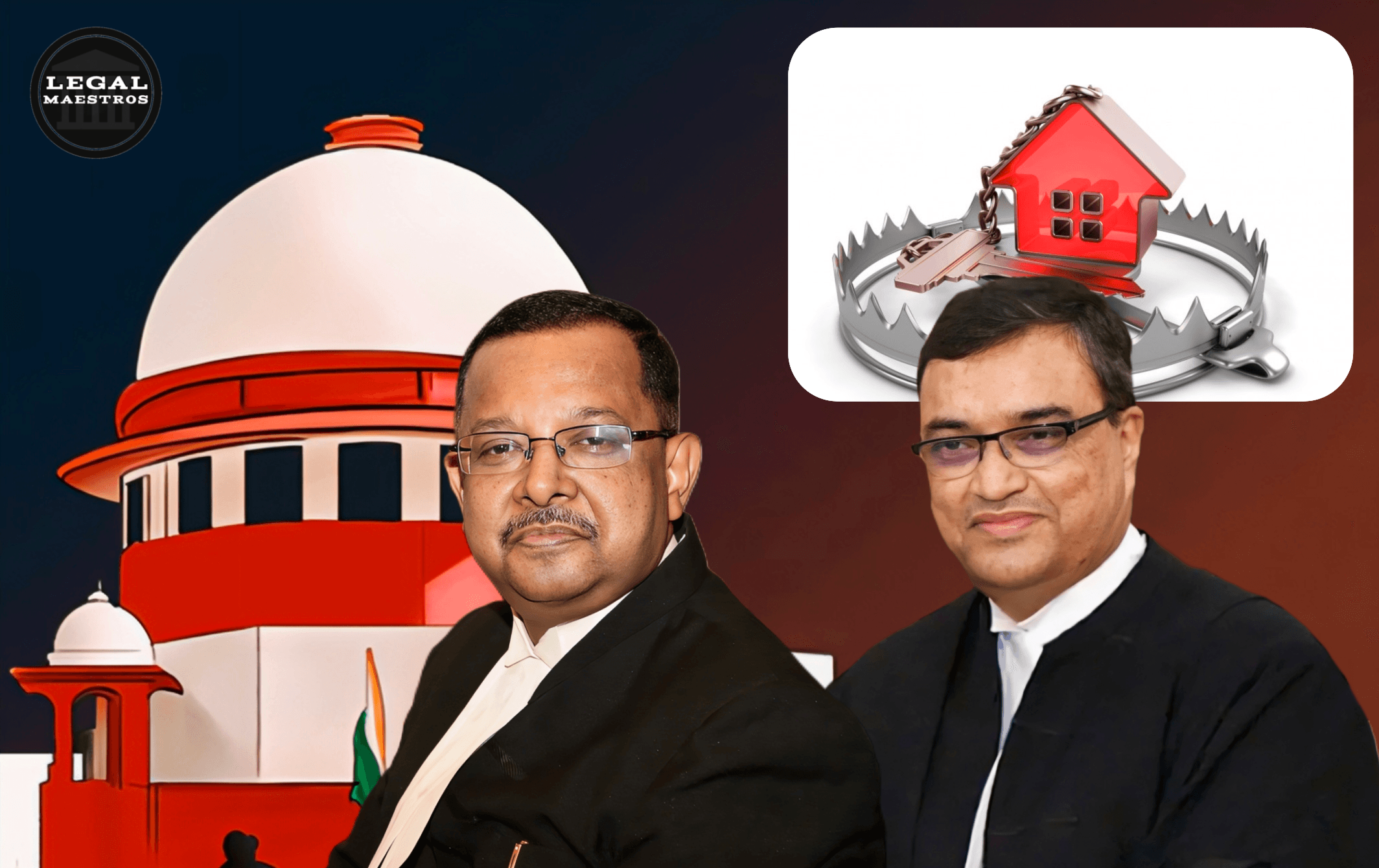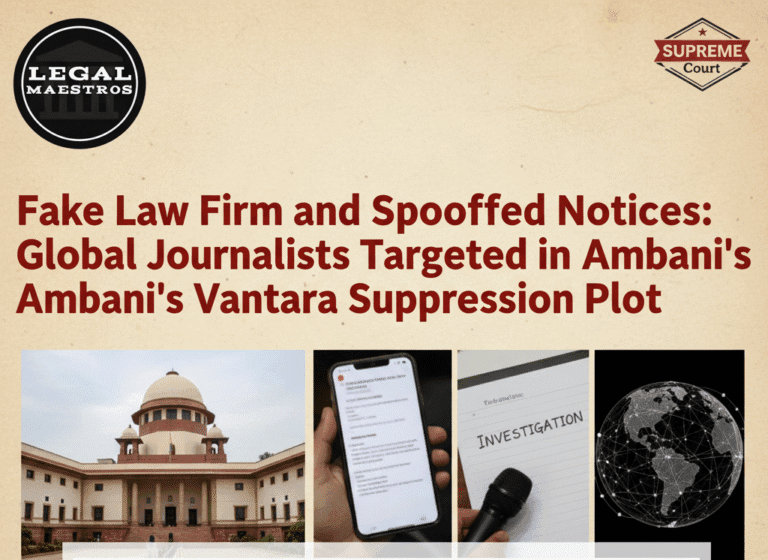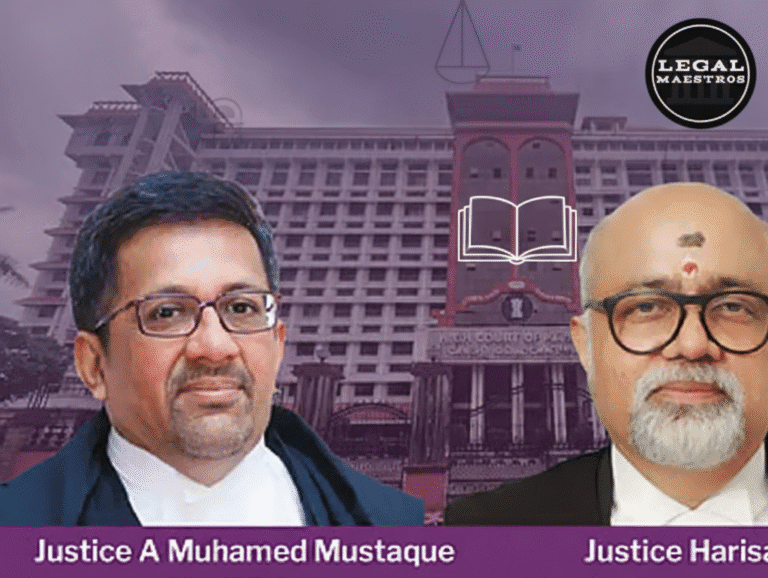
TRecently, the Supreme Court of India gave an important ruling in a complicated land case at the Civil Appeal No. 7777/2023 that was mostly concerned with gross claims of fraud. It is the case between Vishnu Vardhan (also called Vishnu Pradhan) and Reddy Veeranna, on one side and the State of Uttar Pradesh and the New Okhla Industrial Development Authority (NOIDA) on the other side which illustrates the perseverance of the judiciary in the population of justice and pre-emptive of misuse of legal mechanisms. The words of the court remind of the fact that the legacy, received with the help of fraud, cannot be preserved and the mantra proves that a lie can break everything and the assertion that the fidelity of the law can be breached only by a cheat holds true.
Deception and the Mess of Land Ownership: The Nube of the Contention
The legal tussle has been based on a small piece of land that lies in Gautam Budh Nagar, Uttar Pradesh. Vishnu, Reddy and T. Sudhakar bought this land in 1997. It was subsequently incorporated in Sector 18, NOIDA, after it is acquired by the authority in 2005. The three of them had earlier brought several lawsuits with regards to their co-ownership.
In various legal cases Vishnu alleged that Reddy tried to claim the exclusive rights to the land purposely leaving Vishnu and Sudhakar out of the accusation. In one such case, the success of Reddy resulted in a High Court order being made on October 28, 2021, declare that he is the sole owner. The compensation to the acquired land was also substantially boosted under this order as the rate of compensation changed, increasing the compensation of land to Rs. 1,10,000 per sq. meter with some deductions and interests, which was previously Rs. 181.87 per sq. yard. Upset at what he termed as fraudulent activity of Reddy, coupled with the verdict of the High Court, Vishnu got to the Supreme Court.
For any queries or to publish an article or post or advertisement on our platform, do call at +91 6377460764 or email us at contact@legalmaestros.com.
The appeal of Vishnu had an appeal to the High Court order. At the same time, he approached the writ court by petitioning that Reddy was not the single owner and wanted the decision of full compensation of Reddy by NOIDA to be quashed and demanded shared compensation of the three persons (as co-owners) against Reddy. He wanted to have an investigation into the presumed fraud and have a legal action taken against the perpetrators as well.
legal matters of importance and the analysis of the court
Most of the core legal questions produced by the case were thoroughly scrutinized by the Supreme Court.
The Prevailing Fraud Principle
One of the major subjects of the judgment was the effects of fraud that was being perpetuated in courts of law. Referring to some of the earlier cases such as the Nidhi Kaim v. State of Madhya Pradesh and S.P. Chengalvaraya Naidu Vs. It was stressed by Jagannath that the judgment or decision of a fractional decree is considered as nullity and has no legal force. It can be disputed in any court even collaterally. The Court also added a note to the effect that the fraud is an intentional deception, and is meant to achieve an unfair advantage and that the fraud does not recognize any of the judicial acts. It was also pointed out that even though the case of fraud brings all in water, it has to be well pleaded and proved, as required in order: 6 rule/ 4 of the code of civil procedure, 1908.
For any queries or to publish an article or post or advertisement on our platform, do call at +91 6377460764 or email us at contact@legalmaestros.com.
Writ Petition and Appellate jurisdiction Writ Petition and Appellate jurisdiction
The Court looked at the question of keeping the writ petition in Article 32 of the Constitution by Vishnu. Article 32 writ petition can be entertained in case a prima facie case that a fundamental right has been violated or in imminent danger has been made out. The Court further held that the writ petition failed to reveal any violation of the fundamental rights and therefore it was not maintainable. Moreover, it reiterated the fact that a writ petition cannot be made against a judicial order.
Doctrine of Merger, and Exceptions to it
One huge chunk of the arguments was based on the merger doctrine. Reddy argued that the civil appeal of Vishnu was not tenable on the ground that order of the High Court being merged into one that was passed by the Supreme Court previously. Under the doctrine of merger, once a higher court reviews a decision of the lower court by hearing an appeal, and either reverts, overturns or passes the matter, then the order of the lower court will not exist separately but merge with the order of the higher court.
The Supreme Court however explained that the doctrine of merger is not hard and fast rule and cannot be applied in every case. It is based on the kind of jurisdiction that has been exercised, by the higher forum and the principal of the claim that is being challenged. Importantly, the Court observed that when a third party is adversely vexed by an order and, where that party was not involved in the proceedings, then his right to explain the consequences of the order which arose should not be terminated by the principle of merger, particularly when he lacked the knowledge of the earlier proceedings. It is especially so where a decision binds a third party who had not been joined purposely to form part of the respondent assortment. The Court also addressed the situation where it may be necessary to have a general decision that involves several parties but there will not necessarily be a consolidation of all the separate cases.
For any queries or to publish an article or post or advertisement on our platform, do call at +91 6377460764 or email us at contact@legalmaestros.com.
Forum shopping and Simultaneous Remedies
Vishnu had filed various remedies and these included a civil appeal, a review petition, and a sought modification/recall. Although the issue of forum shopping was not specifically mentioned as an offence committed by Vishnu in the judgment against the latter, as an overall rule the concept of forum shopping must have been in view of a party making a request in the same matter and then acting through other means that are likely to be misuse of court procedure.
The decision of the Supreme Court in this case can be considered as a vital lesson that can remind the importance of the judiciary in maintaining justice and avoiding the legal system to be manipulated. Keeping the civil appeal, as well as application to recall previous order, the Court gave Vishnu a chance to argue about the claimed fraud. The rejection of the writ petition, though, highlights what is required to be able to invoke Article 32. The discussion of the doctrine of merger in details, proves further that procedural technicalities must not become an obstacle to justice, at least where there is criminal fraud or where the rights of innocent parties are concerned. This case restates once more that reliability and openness are all vital in any lawful business as justice is always at the end of the road. Sources






![Research Assistantship @ Sahibnoor Singh Sindhu, [Remote; Stipend of Rs. 7.5k; Dec 2025 & Jan 2026]: Apply by Nov 14, 2025!](https://legalmaestros.com/wp-content/uploads/2025/11/Gemini_Generated_Image_s0k4u6s0k4u6s0k4-768x707.png)
![Karanjawala & Co Hiring Freshers for Legal Counsel [Immediate Joining; Full Time Position in Delhi]: Apply Now!](https://legalmaestros.com/wp-content/uploads/2025/11/Gemini_Generated_Image_52f8mg52f8mg52f8-768x711.png)